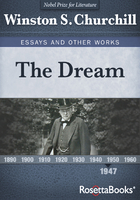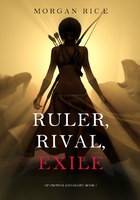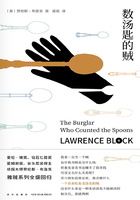Luther Hodges, Chief of Homicide, was having one of his depressive moments, a frequent occurrence these days. Behind his back, for reasons lost to career history, he was known as "the Eggplant." To characterize him using this insulting but stubbornly persistent sobriquet made Fiona sometimes feel guilt stricken. Unfortunately, it was inextricably involved in the way that she thought about him, which was not meant to be debasing but affectionate in an odd way. Of course, she would never call him that to his face.
He was not an "eggplant" in the derogatory Italian sense, meaning someone that was not the sharpest knife in the drawer. He was often irascible and cantankerous and occasionally, dictatorial and ruthless in the treatment of his subordinates, but his keen intelligence, insight and investigatory skills trumped his other less-attractive traits. And yet, despite the fury of their occasional battles, she knew that beneath it all, although never articulated, they admired and respected each other, not only for their police skills but for their insight into human behavior from each of their perspectives, as well.
They were both outsiders. He was married to a woman who was part of a family of the aristocratic and snobbish blacks whose antecedents and achievements predated the Civil War, and to whom "old family" meant status in the world of Gold Coast Negroes who were at the top of the pecking order of that society. To them, the achieving whites that surrounded them were lesser in every human trait and accomplishment.
His home life, she suspected, was a perpetual ordeal because he had chosen a profession that was considered beneath the aspirations of this group who were mostly doctors, professors, and in other prestigious careers. Only the title of Police Commissioner could vindicate this choice. So far that appointment had eluded him.
Although he had the qualifications, education, and brainpower far above his peers, he lacked the required diplomatic skills, and he was incapable of suffering fools, both above and below him. Ironically, family connections kept him secure in his role as Chief of Homicide.
Fiona's own credentials were more conspicuous. She was the lily-white princess in this den of macho black cops. Daughter of a former senator, financially independent, raised in the precincts of the white-establishment of the capital's power elites, she was deeply connected with both; the cave dwellers or the permanent cadre of Washington high society, including the political, diplomatic, and media high rollers, and decision makers who came in and out of the capital's revolving doors. Her career choice was more than simply an aberration. It baffled everyone—that is, everyone but herself.
To the question of why she had chosen such a high-risk, blue-collar, race-sensitive career, she would respond using the same coy answer offered by the mountain climber, "Because it's there." Nobody who knew her well ever asked the question again. Who could possibly believe that she felt becoming a homicide detective was her natural calling?
"Turnover," Chief Hodges sighed. "We can't compete with the expanding need for security by the private companies. We're losing too many good people."
"Not us, Chief."
Fiona knew he had spurned offers at twice or three times his policeman's salary by these very same companies, and unlike many of their coworkers, the early pension was not the real lure. She, too, had had her share of offers.
"We both know why we stay, Chief," she told him gently, which was not the tone of her usual response in the heat of homicide business.
"Because we're idiots," he sighed.
"It's because we dig the bullshit," Fiona said. It had become a rationale in her head. "We love being harangued, insulted, and assaulted by the bad guys. Love being abused by our superiors. Love the long hours, the stupid paperwork, the repressive expectations on addressing race, religion, and gender. Best of all, we love beating up on the lying scumbag killers who think they can get away with murder. There's where the real high comes from, that and unraveling the puzzles. Because, Chief, say what you will, it's fucking fun."
"Fun?" He lowered his voice and offered a rare non-sarcastic smile, and she knew the cloud was passing. "Sure," he said, with an ironic chuckle. "Getting our kicks mucking around in the blood of dead people. Like being addicted to horror movies."
"That's make-believe, Chief. We get into the picture like the old Woody Allen movie where the guy steps out of the frame. Only the reality is reversed."
"Are we now into the meaning of life, Fitzgerald?"
"Every day, Chief. Only it's the meaning of death." She shook her head. "I'm beginning to sound like Izzy."
Sergeant Isadore Silverman was her new partner. Talk about outsiders, she thought smiling. Now there was an anomaly, a black Jewish cop. She suspected that the Eggplant had done it deliberately, his idea of a joke. Actually, she was beginning to warm up to the arrangement, although Izzy drove her crazy with his Judaic slant on every aspect of the job.
"Is it working?" Chief Hodges asked, unwrapping another Panatela.
"We're adjusting," she admitted. She sorely missed some of her old partners, but the realities of attrition, and the lure of higher salaries had taken their toll. What was left were the truly dedicated and committed, like her, Chief Hodges, and Isadore Silverman. Izzy could be infuriating with his penchant to philosophize with obscure Talmudic references. So far they had handled only the routine and mundane. Nothing controversial had come their way in the two weeks they had been together.
"He's a good man," Hodges said. He put the unlit Panatela in his mouth and bit down. The telephone rang, and he picked it up, looking out the window. She got up and went back to the squad room.
***
The call came in about an hour later. A man had jumped or fallen in front of a subway train at Metro Center. The whole system would have to be delayed until the police got there.
"Bad choice," Izzy said, as they sped toward the station. "With high-rises and bridges everywhere, why throw yourself in front of a train?"
"Maybe he was pushed," Fiona grunted.
"Suicide is against God's plan. He owns our bodies, and no one has a right to deliberately destroy it."
She looked toward him and made a face with good-natured admonishment.
"Leave God out of it, Izzy."
"Not possible. Although that concept is more Christian than Jewish."
He was gaunt with high cheekbones and a strong chin, and at certain angles he struck her as movie-actor handsome. His complexion had a mahogany sheen, and against his premature graying hair, white teeth, and hazel eyes, which in bright light turned green, he had a look that was decidedly different, it hinted at some pure but obscure African bloodline. Despite that she had heard there were pockets of black African-Americans who considered themselves Jews, she had never met one and was having difficulty getting used to the phenomenon.
She was, of course, curious about his unusual background, but refused to pry. She didn't have to. Knowing he was an anomaly, he offered Fiona occasional information about his unique background, noting that he was inspired to enter police work by Reuben Greenberg, the much honored and revered black Jewish Chief of Police of Charleston, South Carolina, who had transformed that once crime-ridden city and created a model for outstanding police work.
Izzy was in his late thirties with two children and a wife who was an analyst in the Department of Education. She had converted to his faith and both had joined the Anshe Emet Temple off Connecticut Avenue. Raised in Harlem in the tight, tiny, black, self-proclaimed Jewish sect, he had earned a Master's degree from New York University, and nearly ten years with the New York City Police Department when his wife was transferred to Washington. He was deeply committed to his work. Izzy was awkward with camaraderie and slightly standoffish, which was often interpreted by his fellow officers as snobbery. He knew exactly where he stood in the societal pecking order: a natural target for triple bigotry—religious, racial, and class. Thankfully, he had a healthy sense of humor and a talent for investigative insight.
Izzy's insufferable Judaic comparisons aside, he had a rigid moral streak in him that eschewed vulgarity. He was one of the few people in the department who never said fuck and who avoided using the ghetto slang endemic among his colleagues. He knew it, of course, but resisted its use, unlike Fiona, who had mastered the idiom and could haul it out when required. Fiona wasn't certain he would make a good partner and was leaving that verdict open. They were now in the honeymoon period of the bonding process.
***
The police had cordoned off the entrances to the subway station and kept frustrated commuters at bay, much to their noisy chagrin. The victim was a male. One car of the train had passed over his torso, which lay in a pool of blood, and his glasses had been smashed.
Fiona and Izzy did a cursory inspection of the body, reaching into his pockets. They were startled to find no evidence of identity, no wallet, no keys, just a non–rush hour subway ticket to exit some station down the line and two hundred dollars of folding money. The platform on which the man had stood was heading north, and the ticket indicated the distance that the man had planned to travel: enough fare for the end of the line.
His face, frozen in an expression of baffled surprise, looked vaguely familiar, but Fiona couldn't place him. A closer inspection revealed that his moustache was pasted on, which startled her, but she left it in place, pending the medical examiner's inspection. His body was a bloody mess, but the head was clearly identifiable.
They determined that the man had jumped, fallen, or been pushed, at about two fifteen in the afternoon, which was when the train headed into the station. There were no signs of scuff marks at the edge of the platform that could have indicated a struggle. A small, wizened old lady was the only witness. She had seen his body fall from, as she put it, "the corner of her eye."
"It happened so fast," she kept saying.
Since headquarters was close by, they had arrived swiftly, just a few minutes behind the uniforms who were quick to corral the few people who remained on the platform as potential witnesses. It was an off-peak time on the subway system, and although the crowd was sparse, the event had happened at the extreme end of the station where only the first car had gone over the body.
The train operator, who was merely a live backup for a computer-operated system, said he was not certain he saw the man fall, not that he could have stopped the train in time. He was a youngish black man, very nervous and upset. His lips trembled as he spoke, and his eyelids blinked repetitively.
"We were just pulling in, slowing down. We were no more than fifteen feet from stopping. I didn't see him until he passed in front of the cab. This is awful. It's never happened to me." He brought a trembling hand to his face and shook his head. "The thought of it…."
"Did you see his face, his expression?" Fiona asked.
"All I saw was a blob right in front of me. It happened so damned fast. There was no warning, damn it. There he was, this person falling. Unfortunately, you can't stop these big babies on a dime."
He shook his head in genuine despair. Fiona noted that he was sweating and breathing heavily, a certain candidate for posttraumatic stress disorder.
"Never happened before. I wish there was something I could have done."
"Don't blame yourself," Izzy said.
"Why would someone choose such a terrible way to die?" the young man mused. "I jumped down to see." He shook his head vigorously. "Blood everywhere. I'll see this in my mind forever. If only… but, you see, there was nothing I could do."
"And you saw nothing else, just the man falling? A blob, you said."
"This moving lump."
"Did you see his face? Hands? A detail of clothing?"
"Only this falling object. Like… it just fell in front of the car."
"Did anything catch your eye, arrest your attention on the platform? Someone standing there? Any movement? A flash of anything?"
He hesitated. His brow wrinkled, and he appeared to be straining his memory.
"I can't really remember," the operator said, shaking his head. It was typical of a witness to sudden violent death. "Nothing registered that I can remember. Just that body passing in front of my eyes and…." He shook his head.
"And what?" Fiona pressed.
"A flash of something. I dunno. A color maybe."
"A color?"
"I can't, not now. I'm too shook up."
The man was trembling. A nerve twitched in his cheek. It was obvious that he was in shock, and they didn't press him further. His name was August Parsons. Izzy wrote it down and gave him his card.
"If you can think of anything helpful, give us a call."
Parsons took the card indifferently and slipped it in his pocket. By then a group of officials from the subway system had arrived. Fiona and Izzy learned from one of them that as a general rule, the first car did not attract as many passengers as the others.
"Guess people think that the first car might take the brunt of a head-on crash," Izzy speculated.
"Logical," Fiona agreed, acknowledging that it might cross people's minds.
They interviewed those who were still assembled on the platform. No one had seen the man go over. People on the station didn't realize that there had been anything untoward, since the train actually stopped at its usual point and the doors had opened, letting the passengers out. It was not until the train did not move again, and all passengers were asked to exit, that anyone knew someone had been killed at the front end of the train.
Those who remained on the platform could not, of course, have seen the man go over. By the time the passengers were disgorged and went about their business, it was difficult to determine who was on the platform at the time of the incident and who was not. Nor was it possible to determine if anyone had noticed who left the station between the time the man went over and the arrival of the police. With the exception of the old lady, no one had seen anything, and even the old lady's explanation was not helpful.
"Did you notice anyone else in the vicinity?" asked Fiona.
The old lady thought for a moment then shook her head.
Metro Center was a hub station, a transfer point, and although it was not a peak time, people came and went, mostly self-absorbed. With the exception of the old lady, whose observations were suspect and unhelpful, the only logical conclusion was that the man had jumped deliberately or fallen by accident.
It could not be discounted that he might have been pushed, but there were no bona fide witnesses. At that hour, the few people who had been on the platform, had been occupied by their own thoughts and observations. No one credible could be found who had witnessed the man's fall. It wasn't long before the media began to invade the site.
"Suicide, Fiona?" She heard the voice of Harrison Bolger, a police reporter from the Post. He had called down from the platform as the body was being bagged. He was scruffy, overweight, with features swimming in a puddle of flesh like a bulldog.
"Maybe," Fiona answered, glancing at Izzy with raised eyebrows. "Watch out," she whispered. "He's a leech." Izzy nodded.
She knew many people on the staff of the Post through her relationship with Larry Porter, the man she was currently involved with, and others whom she had known since her childhood. Larry was Metro editor, one of the hotshots whom Ben Bradlee hired fresh out of Harvard, which was also Bradlee's alma mater. Metro editor was one of those jumping-off points to higher authority. Clearly, Larry was a man on the rise, and part of what he often gloated was the "inner circle."
"Is it male, female, black, white?"
"White male," Fiona snapped, watching Flanagan's crime site clean-up helpers lift the body onto the platform and onto a stretcher. Photographers followed them, taking shots. "He's off to the medical examiner."
"Who is he?" Bolger persisted.
"Can't say," Fiona shrugged. She was sorry to have said it that way, arousing suspicion. She had meant that she didn't know, but revealing the lack of identification might have been even more tantalizing.
"Why not?"
"You'll be the first to know," Fiona said. Like the aquatic worm, he sucked out information like blood and was not easy to detach.
They climbed a portable ladder to the platform and left the forensic team to their grim work.
"Come on, Fi. Is there more here than the obvious?" Bolger pressed. He followed her and Izzy to the escalator and stood next to her as they ascended.
"Not every day someone is killed by a subway train. There's a story here. Larry will want to know."
There was something snide in the remark, invoking Larry. She bristled at Bolger's attempt to connect them in a business way.
"Everything in good time," she said, forcing herself to be reasonably pleasant. Then in a burst of temper, "Get out of my face, Bolger."
"I'm just doing my job, Fi. At least, tell me who it is. Is it somebody important?"
"Every life is important," Izzy said, turning from one step ahead of them on the escalator. He met Fiona's glance and nodded.
"Good retort," Fiona said as they reached the street level and got into the car. She offered a one-finger good-bye to Bolger, not the middle one, although she was sorely tempted. Don't fuck with the press was one of Chief Hodges' caveats. He was a publicity hound, perhaps hoping that notoriety would impress his wife and her community of snobs.
"No matter what, he'll get it by osmosis. Thinks he's onto something, he never lets go."
Izzy at the wheel weaved the car through traffic while she pondered the information—no identifying papers, a false moustache, glasses. She had marked everything as evidence and placed them in a plastic envelope but left the moustache untouched. By mutual consent, they held back on off-the-cuff theories, although Fiona was certain they both knew this was raw meat to a homicide detective, a mystery with lots of "whys?" In today's world, Fiona speculated, who walks around without evidence of identity, even phony ones?
"We've got a live one, Izzy," Fiona said. She did not wait for his reply and raised her hand before he could get a word out. "Don't start. Not now."
About an hour later, the prints came back with a positive identity. She knew why he had been familiar. She had been introduced to him at one of the Post's events, although had never engaged him in conversation.
"Good God! Not Adam Burns," Fiona said, stunned by the revelation.
"High profile," Chief Hodges said, as Fiona and Izzy sat in front of his desk. He was already chewing heavily on an unlit Panatela. "The Feds will descend."
"Adam Burns was an over-the-top anti-administration columnist, syndicated everywhere by the Post," Fiona said. "Three times a week, he hammered away. Made Krauthammer look like a toady."
"Never read him," Izzy Silverman said, tipping his political leanings.
Chief Hodges sighed and smashed the Panatela into the ashtray.
"We are about to be sucked into the eye of the storm."
"Is that good or bad?" Izzy asked.
"Both," Hodges grunted.
"Everyone will jump to conclusions," Fiona said. "Can't you just hear the media chorus? Assassination! Surrogate killers! CIA! Like the Russians and the Arabs! Kill the messenger! Maybe… Mossad involvement! The floodgates will open. Conspiracy theories will abound. A rabid administration hater gets wasted. Worse, the man is in disguise with no documented identity on his person. What was his mission? Why? Mass hysteria will reign."
"And the clincher—who benefits?" Izzy asked, offering the crucial question of motivation that dominates every homicide puzzle. "These days the opposition blames everything on the President, including natural disasters."
"With Burns out of the way, the President benefits," Hodges muttered, "ergo, many will summon up the obvious, depending of course, on their political persuasion."
"Has legs," Fiona said. "One heavy hitter against the dead man, maybe more to come. A time-honored solution to dispose of critics; historical precedents abound."
"Not in America," Izzy said. "Not the President. Come on."
"Are you living on some other planet, Izzy?" Fiona asked. "Our politicos are playing blood-sport games, these days. No," she said. "Not like in my old dad's day."
"I thought this was suicide or accident. No witnesses. What's all this homicide bullshit?" Chief Hodges admonished, irritated by the way the conversation had gone.
"Just fleshing out possibilities, Chief," Fiona said.
"Your imagination's getting hyperactive again, woman," Hodges said, his rebuke accelerating. She hoped he wouldn't get into one of his rages.
"Might have been dead before he went over," Fiona speculated.
"Doubtful. Why kill him twice?" Izzy asked.
"Cover-up," Fiona suggested.
Chief Hodges smiled his sarcastic smile.
"We're baking bread with horseshit, people," he snickered. "People will rush to speculate and probably believe all of the above. Not our brief, people. So far all we got is squat but suicide or accident."
"Not all, Chief. Fake moustache. Phony glasses," Fiona pressed. Hodges showed his increasing irritation. "Prez hater in disguise is killed by moving train. No identification. Intriguing, right?"
"Doesn't alter the facts—no witnesses, no crime."
"The Talmud says two eyewitnesses are required to validate."
"Now that's really helpful, Silverman," Hodges harrumphed, blowing air between his teeth and unwrapping another Panatela, soon to join the dead tobacco leaves in his no-ash ashtray.
Fiona knew his mind was racing now, contemplating possibilities. She deliberately intervened.
"We've got to control the action, Chief," Fiona said, her imagination charging with ideas. She was weaned on politics and knew the turf well, although it was morphing into a more violent hate zone than she had ever observed.
When her father was alive, national politics was equally a battle royal between factions and parties, but there was little gut-wrenching hatred and brute animosity between partisan opponents. After business hours, mortal political enemies were able to socialize and maintain friendly, often life-bonding relationships. Not anymore. She had inherited her Democratic political leanings from her father, but she was determined to remain neutral in her job and keep an open mind on all issues. She was an investigator, and anything partisan was anathema to objectivity in her police work.
"It's too obvious a motivation for murder," Fiona said. "Not that there won't be lots of theories and hate-filled assumptions. Nobody in his right mind would risk literally killing off the opposition, certainly not by presidential fiat. Besides, Burns was only one voice in a growing chorus. The White House is ground zero for bitching and moaning, everybody's a target."
"This guy Burns was armed to the teeth with animosity, and he dished it out three times a week," Izzy interjected.
"Jumping to conclusions," Hodges sighed, eyeing Izzy with his trademark look of ridicule. "Only an idiot would countenance such an obvious hit. Even the most na?ve president would know that. This is not Russia or some dumb-assed third-world country. We don't shoot our critics here." He laughed. "Then again, maybe we should."
"That won't stop the media from asserting the possibility," Izzy said.
"Once they get over their glee," Hodges muttered.
Although they had, so far, rarely discussed politics, it seemed obvious that Izzy was a rabid supporter of the President. Speculating that her idea was based mostly on the grounds of his racial kinship, Fiona detested herself for the judgment.
From her long experience in Washington, she knew what the President was up against, and she understood that most of the political class was made up of ambitious people with different agendas and constituencies. If she was sometimes cynical about their motives, it did not mean that she disliked them as a group. They were insufferable, hypocritical, deceptive, vain, egotistical, charming, often counterintuitive, but they ran the show or acted as if they knew exactly what they were doing. Because of her father, she had a warm spot for the breed.
"No matter what," Chief Hodges sighed, "we don't deliver, they'll come down on us as sycophants and stooges for the administration. We're on the lowest rung of the feeding chain. Expect everyone from the Secret Service and all the initials to pounce for their own reasons, meaning the CIA, FBI, NSA, et cetera, et cetera."
"It's our jurisdiction, Chief," Fiona said. "Not that such a trifling matter will hold down the Fed horde. We'll just have to stay a step ahead."
"If too many Feds show up, the media will charge confusion and cover-up," Hodges said. "And somehow, expect the slime to flow over us. Nature of the beast."
"Something like the lady doth protest too much," Izzy said.
Fiona saw the point. People might think the Feds were overdoing it deliberately, covering up leads, obscuring tracks.
"Got a point, Silverman," Hodges conceded. "But don't fool yourself. We don't have a strong immune system. Beware the Feds. They'll be launching their slings and arrows. Brace yourselves. We don't come up with an airtight answer, the media will say we're in on the cover-up."
"Fuck the media," Fiona snapped.
She thought suddenly of Larry and smiled. That was exactly what she had been doing for the past few months.















